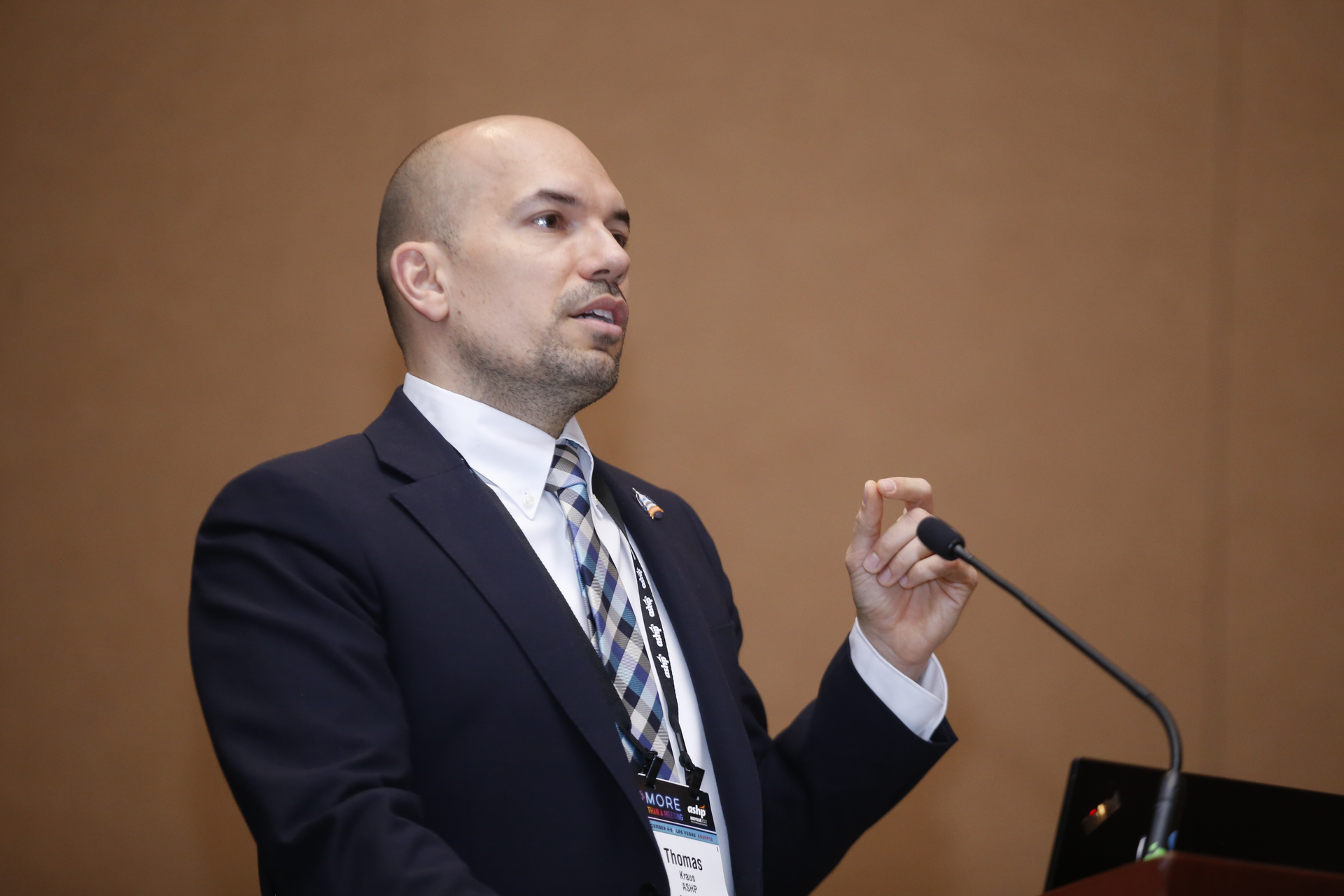
From 340B to the PREP Act, pharmacy is there for patients.
There has been a dramatic shift in the way policymakers view the role of pharmacists. That was one of the many topics discussed during Tuesday’s session Engaging Federal and State Policymakers: Key Issues for Health-System Pharmacy, led by members of ASHP government relations team.
During the pandemic, the federal government expanded pharmacists’ scope of practice through the Public Readiness and Emergency Preparedness (PREP) Act’s emergency authority, allowing pharmacists to prescribe medications, order vaccinations, and test and treat for COVID-19.
“I believe this is the first time ever that the federal government really reached into what is normally state scope of practice and said that pharmacists must be providers for these services,” said Tom Kraus, ASHP vice president of government relations.
Kraus said states have also been active throughout the pandemic, expanding pharmacists’ scope of practice and allowing flexibility in collaborative practice agreements. He said some states have designated pharmacists as “other recognized providers” in their Medicaid programs, and employer, commercial, and Medicare Advantage plans are increasingly covering pharmacists’ services.
Other advocacy ‘wins’ include state governments increasingly calling on pharmacists to provide patients with access to essential healthcare services — from COVID-19 testing to patient counseling and administration of certain drugs.
Forty state Medicaid programs now recognize pharmacists as providers for at least one billable service, and all 50 states have expanded pharmacists’ ability to provide care, Kraus said.
However, more work remains. That’s why federally, ASHP is working to advance two bills on provider status, said Frank Kolb, ASHP director of federal legislative affairs.
ASHP continues to support the Pharmacy and Medically Underserved Areas Enhancement Act to expand access to pharmacists’ services for Medicare beneficiaries living in medically underserved areas under Medicare Part B and the Equitable Community Access to Pharmacist Services Act, which would cover pharmacist-provided services for COVID-19, flu, and respiratory syncytial virus. Both acts would also cover new pharmacist-provided services authorized in future expansions of the PREP Act, Kraus said.
Jillanne Schulte Wall, senior director of health and regulatory policy, said ASHP is also advocating for the Centers for Medicare & Medicaid Services to adopt coding changes to make reimbursement for incident-to care better reflect the time, intensity, and duration of pharmacist-provided services.
The panel also discussed efforts to protect the 340B Drug Pricing Program, which many hospitals rely on to fund services for low-income and underserved patients.
Just this week, ASHP and partner organizations launched a new digital campaign to raise awareness of the 340B program’s 30-year history of improving patient access to care. The campaign encourages federal agencies and congressional leaders to support the 340B program.
Kolb discussed legislative pushes to protect the 340B program from actions by drug manufacturers and pharmacy benefit managers (PBMs) that jeopardize patient services. He said ASHP supports the PROTECT 340B Act, bipartisan legislation that prohibits PBMs and health plans from implementing policies that discriminate against 340B providers.
ASHP also created model state-level legislation to prevent payers from reimbursing 340B-covered entities at rates less than those required by the 340B program.
About 25 states have existing state laws that prohibit PBMs from discriminating against 340B pharmacies. Kraus encouraged attendees to share ASHP’s model legislation with their own government relations team and encourage its adoption.
Tuesday’s session also included a discussion on the current political climate, efforts to eliminate X-waiver requirements that limit the availability of medications for opioid use disorder, advocacy to prevent payer-mandated white bagging, biosimilar parity requirements, efforts to address drug shortages, implementation of the Food and Drug Administration compounding guidance, and protection of pharmacy residency funding.
Visit ASHP’s advocacy key issues webpage to learn more.









